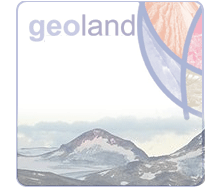ONP-Product # 5.1 - Changes in Mountain Vegetation Cover
ONP-Product # 5.1 - Changes in Mountain Vegetation Cover
Structural changes in Norwegian agriculture have lead to long-term changes in the vegetation cover in Norwegian mountains. The seasonal summer farms in the mountains have gradually been abandoned over the last 40 years. The disappearance of a grazing livestock has resulted in considerable changes in the vegetation cover and consequently also in biological diversity. Climatic changes may interact with and strengthen the process. For the management of these areas, it is firstly important to identify where such changes take place, and secondly to characterize these changes. A running and operational service, where current satellite data are compared with historic satellite data, will contribute to the identification, verification and characterization of such changes.
Methodology
The change-detection service will address established vegetation units. These units are provided from existing vegetation maps. These maps have typically been compiled for map scales in the range 1:20,000 – 1:100,000 having a nomenclature with 45 vegetation classes, and are based on the field inventory. By undertaking the change detection on the polygon level, the accuracy of the data will improve compared to the pixel level. However, large polygons may be subdivided into smaller units.
The service is based on Landsat-like satellite images. It consists of a pool of historic Landsat data, which covers different parts of the growing season, and a system for analyzing new satellite data with respect to changes in NDVI or other spectral features. Each incoming image is compared with older images with corresponding phenological characteristics (rather than finding he closest acquisition date). Depending on the number of images in the data pool, changes can be indicated and trends established. When running operationally, the system primarily yields warnings in order to suggest where the managers should check more carefully.


 How to get to NR
How to get to NR Share on social media
Share on social media Privacy policy
Privacy policy